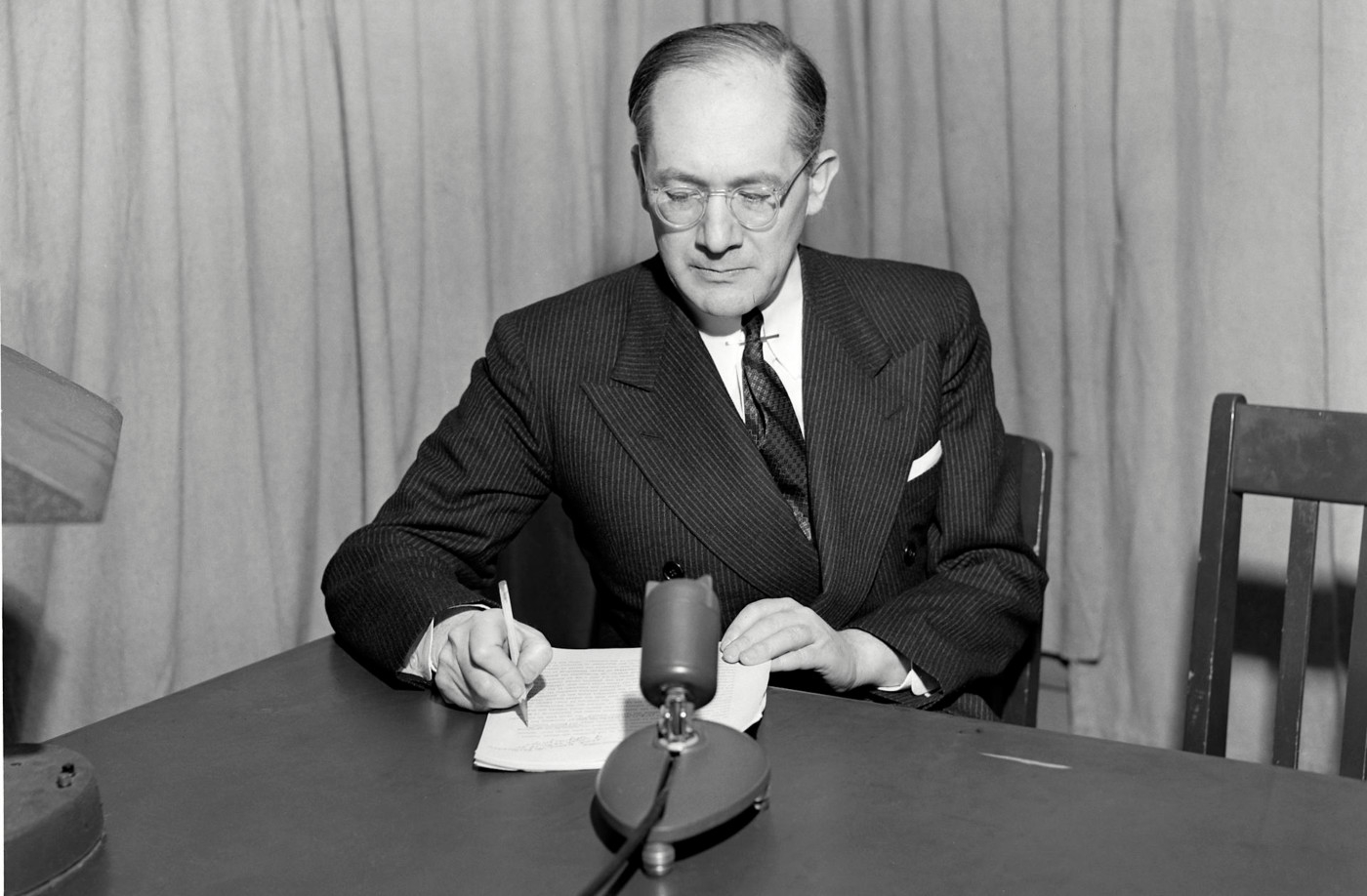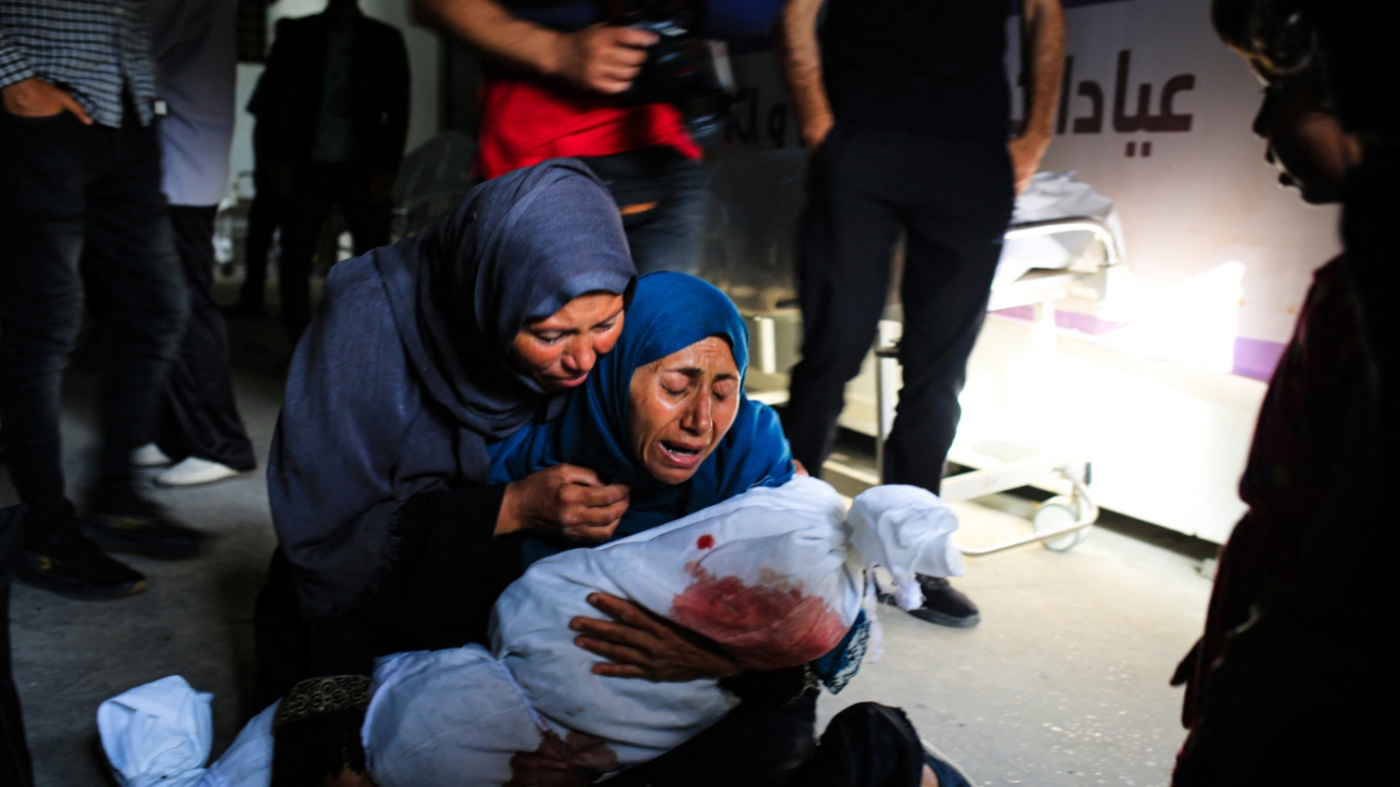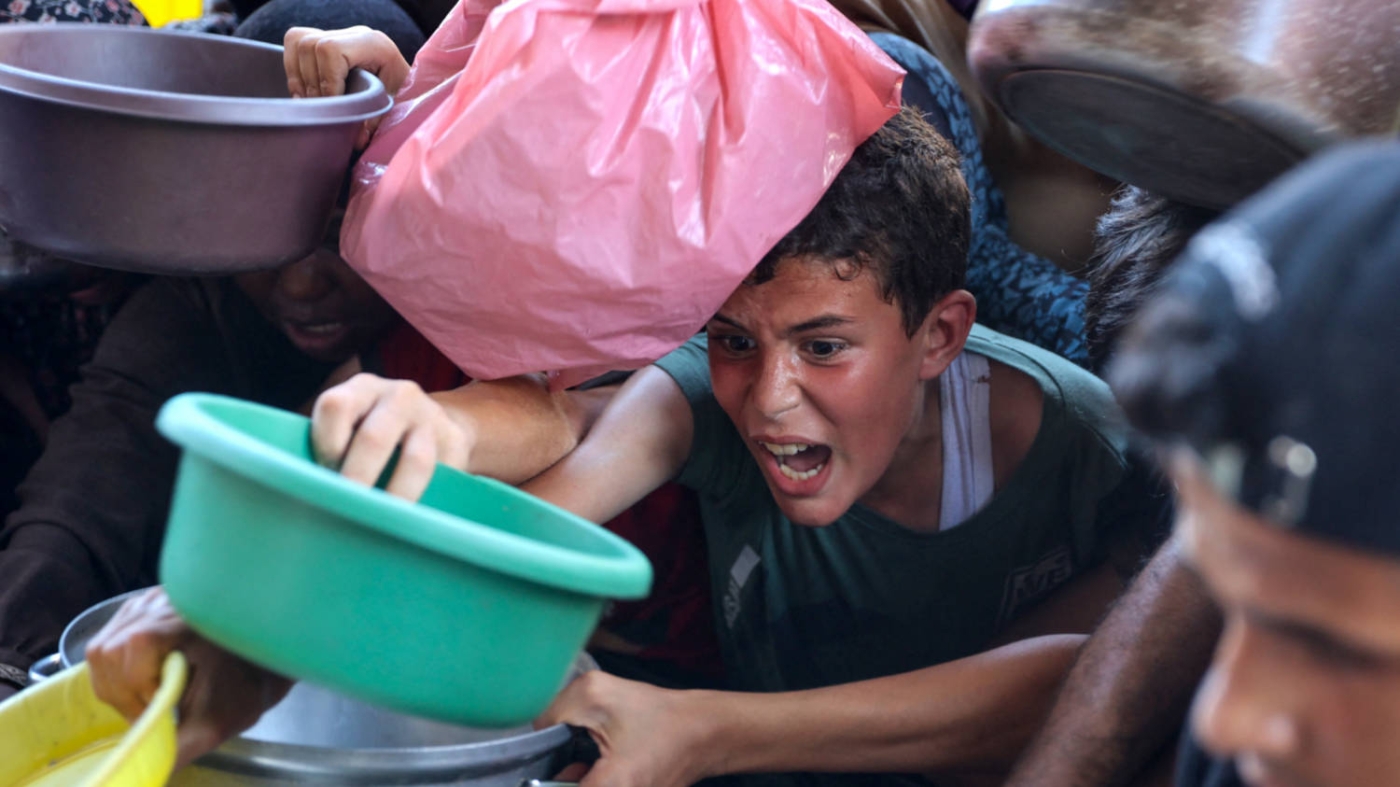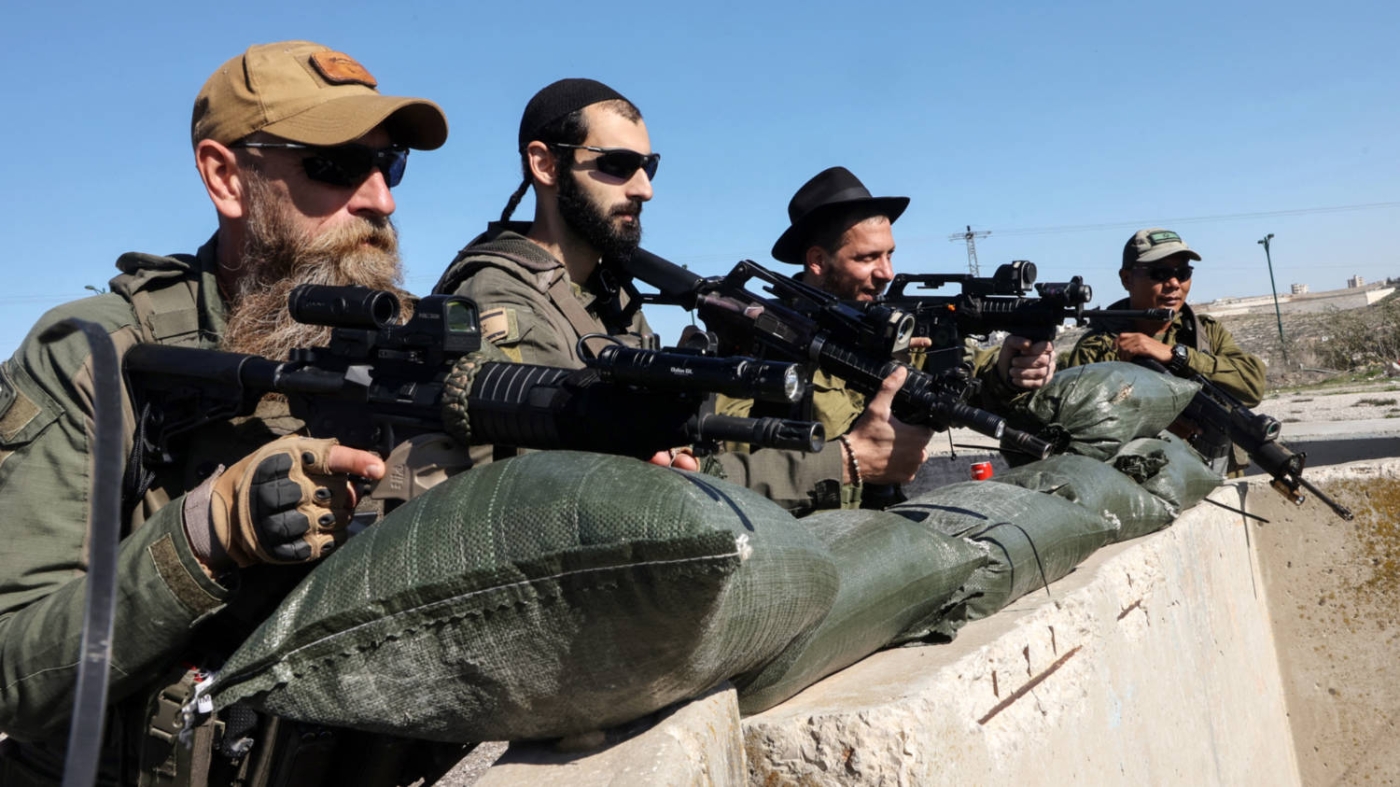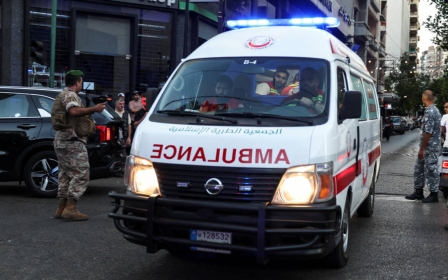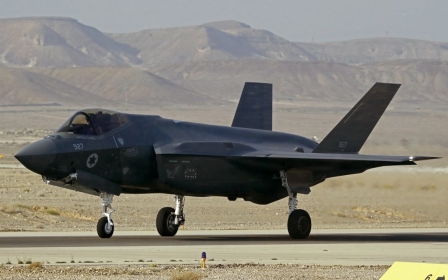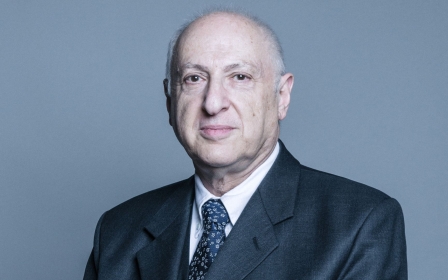Israel's war on Gaza: What the international courts have said
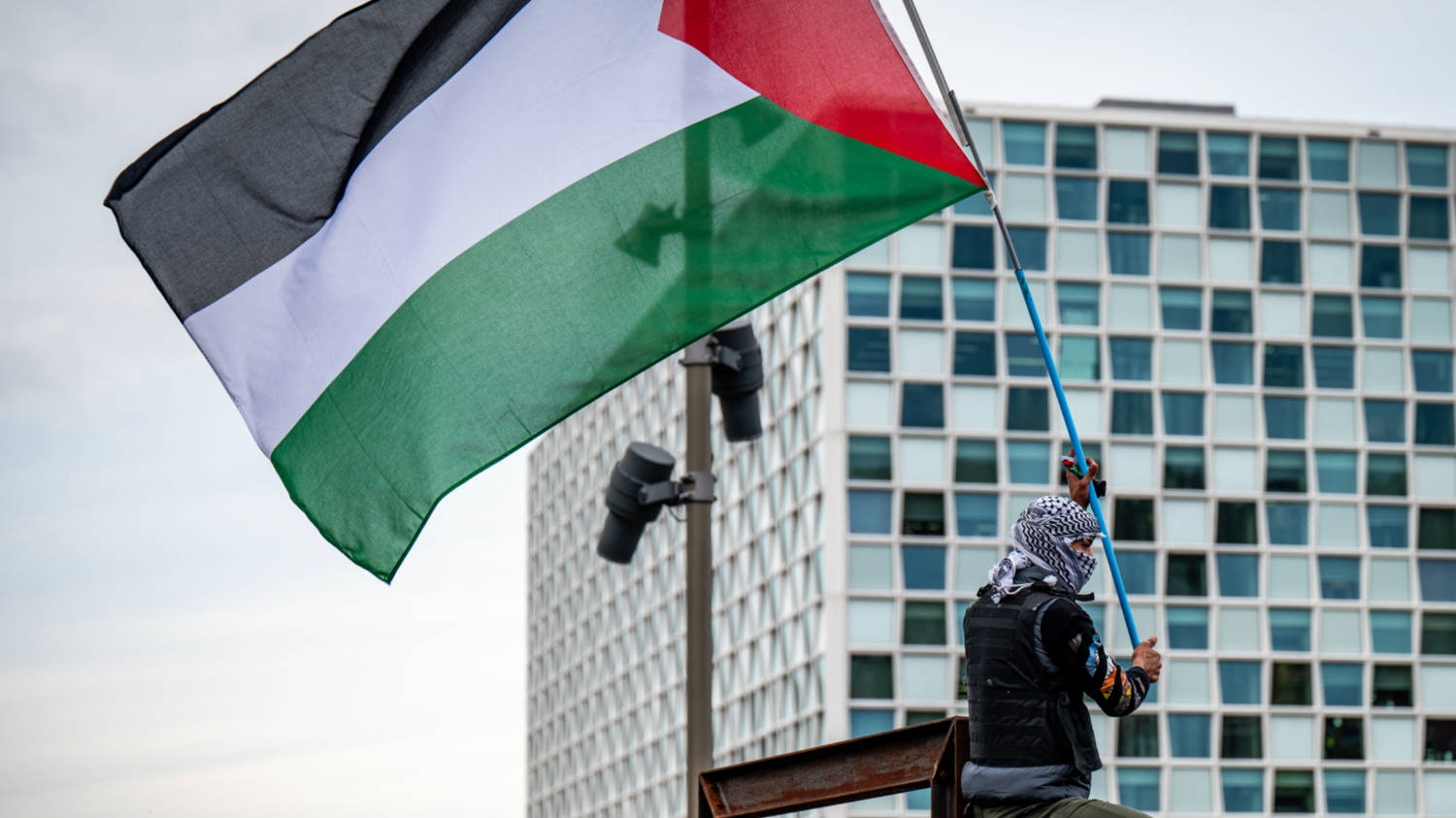
Israel’s war on Gaza has seen cases brought against it in both the International Court of Justice (ICJ) and the International Criminal Court (ICC).
They result from the declaration of war on the Palestine enclave on 7 October 2023, following one of the deadliest days in Israel’s history. Hours earlier, Hamas had led an attack on southern Israel, during which more than 1,100 people were killed. More than 250 people, including 38 children, were taken captive, 96 of whom are reported to be in Gaza.
The Israeli response resulted in one of the worst years of recorded atrocities against civilians in recent history. Nearly 42,000 Palestinians have been killed in bombardments and attacks that have continued on a near-daily basis, including the largest reported killings of children and women in a similar period for the past two decades. Thousands more are missing and feared dead.
Now Israel faces some of its most serious legal challenges during its seven-decade history. The cases before international courts include some of the most severe allegations of violating international law of modern times, such as genocide, crimes against humanity and war crimes.
Palestinian groups are also facing accusations of war crimes and crimes against humanity related to hostage-taking and civilians killed on 7 October.
New MEE newsletter: Jerusalem Dispatch
Sign up to get the latest insights and analysis on Israel-Palestine, alongside Turkey Unpacked and other MEE newsletters
The ICJ has issued several emergency orders mandating Israel to refrain from actions that may amount to genocide. The ICC is looking at issuing arrest warrants against Israeli and Palestinian leaders.
Here Middle East Eye looks at how the cases have evolved and the response of Israel and Hamas.
What is the ICJ?
The ICJ, known as the World Court, was founded in 1945 following the devastation of World War Two. The principal judicial organ of the UN, it is based in The Hague, Netherlands and settles legal disputes between states.
It also provides advisory opinions on legal questions submitted by UN organisations and related agencies.
What does the ICC do?
The ICC was established in 2002 by the Rome Statute of the International Criminal Court and is also based in The Hague.
While the ICJ hears cases brought against states, the ICC prosecutes individuals for serious international crimes, including genocide, war crimes, crimes against humanity, and the crime of aggression.
The ICC's purpose is to complement national judicial systems: it only intervenes when these are unable or unwilling to prosecute those accused of the most serious charges.
What charges is Israel facing before the ICJ?
Israel is accused of violating the 1948 Convention on the Prevention and Punishment of the Crime of Genocide, also known as the Genocide Convention.
The Genocide Convention was drafted by the UN in 1948 in the aftermath of the Holocaust.
It prohibits genocide itself as well as associated incitement, conspiracy and complicity. It is designed not only to punish perpetrators but also to deter and prevent any recurrence.
While all international crimes are serious, genocide is widely recognised as “the crime of all crimes”.
Polish-Jewish lawyer Raphael Lemkin, who himself lost dozens of his family in the Holocaust, spearheaded efforts to draft the convention. He coined the word "genocide" to describe Nazi Germany’s systemic murder of European Jews and other groups (“genos” is Greek for race or tribe, “cide” is the Latin suffix indicating "to kill").
In Article II, the convention states:
"...genocide means any of the following acts committed with intent to destroy, in whole or in part, a national, ethnical, racial or religious group, as such:
"(a) Killing members of the group;
"(b) Causing serious bodily or mental harm to members of the group;
"(c) Deliberately inflicting on the group conditions of life calculated to bring about its physical destruction in whole or in part;
"(d) Imposing measures intended to prevent births within the group;
"(e) Forcibly transferring children of the group to another group."
Article III states:
"The following acts shall be punishable:
"(a) Genocide;
"(b) Conspiracy to commit genocide;
"(c) Direct and public incitement to commit genocide;
"(d) Attempt to commit genocide;
"(e) Complicity in genocide."
Who brought the case against Israel before the ICJ?
South Africa brought a case before the ICJ in December 2023. It accused Israel of violating the Genocide Convention, to which Israel is a party.
The South African case alleged that Israel has committed acts intended to destroy Palestinians, who are defined as a national, racial and ethnic group, in whole or in part. It also alleged that Israel had failed to prevent or punish such acts.
The evidence included statements by Israeli officials expressing “genocidal intent”, and a list of how Israel's alleged actions had met the defintion of genocide, as listed in the treaty.
The acts include killings; causing serious bodily and mental harm; mass expulsion and displacement; and deprivation of access to adequate food, water, shelter, clothes, hygiene, and medical assistance.
Some of the evidence submitted by South Africa included reporting by MEE, such as Gaza correspondent Maha Hussaini's article about the executions of Palestinians by Israeli soldiers in Gaza.
South Africa requested that the court order emergency measures to protect Palestinians from genocide.
What did the ICJ say about Israel?
On 26 January 2024, the ICJ said that it was plausible that Israel had breached the Genocide Convention. As an emergency measure, it ordered Israel ensure that its army refrained from genocidal acts against Palestinians.
But it may take several years before the ICJ makes a full judgement on the case. This is not uncommon. International court deliberations often involve a protracted process of written submissions and oral arguments by all parties to the case. For example, ICJ's judgment in the case of Bosnia and Herzegovina v Serbia and Montenegro, which involved allegations of genocide, was delivered in February 2007, more than a decade after the case began in March 1993.
Following requests by South Africa, the court subsequently issued interim orders on 28 March and 24 May that called on Israel to halt its assault on Rafah and ensure the unimpeded delivery of humanitarian aid to Palestinians.
In its May order, ICJ court also ordered that Israel ensure that UN investigators could enter Gaza to investigate allegations of genocide.
What did Israel do about the ICJ orders?
Not much. The ICJ reported, as part of its decisions in March and May, that the situation in Gaza had deteriorated and that Israel had failed to abide by its order in January.
An analysis by Oxfam published on 1 October 2024 reported that the Israeli army has killed more children and women in Gaza during the past year than the equivalent period of any other war this century.
Halima Begum, chief executive of Oxfam GB, said: “It is impossible to comprehend the scale of the destruction and the number of people killed by Israel’s military in the last 12 months. More harrowing still, those numbers are conservative at best."
In September, Michael Fakhri, the UN Special Rapporteur on the Right to Food, said in a report to the UN General Assembly, that Israel was imposing a "starvation campaign" on Palestinians. “Never in post-war history had a population been made to go hungry so quickly and so completely as was the case for the 2.3 million Palestinians living in Gaza."
On social media he wrote: "In Gaza, malnutrition, famine, and disease are killing more people than bombs and bullets. This personal and social trauma is going to be carried by Palestinians for several generations in the future."
The casualties also include a record number of aid workers, medical staff and journalists, the latter estimated by the Committee to Protect Journalists to be the highest number killed in any conflict during one year since 1992.
Did Israel say anything about the order?
Yes: it twice said that South Africa’s allegations were unfounded. Israel also rejected the accusations of genocide saying they amount to a “distortion” of the convention and that Israel has a right to self-defence following the events of 7 October.
It also said that allegations by South Africa that Israel had a genocidal intent were “random assertions”; that it was trying to minimise civilian casualties despite, it alleged, Hamas using human shields; and that Hamas had taken aid intended for Palestinians.
In two submissions to the court on 16 February 2024 and 15 March 2024, Israel rejected the court's order for provisional measures, saying: "They are wholly unfounded in fact and law, morally repugnant, and represent an abuse both of the Genocide Convention and of the court itself."
Which other states joined the genocide case against Israel?
On 9 October 2024, Bolivia became the latest state to request intervention in the case. Others to have done so include the Maldives, Chile, Turkey, Spain, Mexico, Libya, Colombia and Nicaragua.
Most of the requests for intervention by countries fall under Article 63 of the ICJ statute. This allows them to assist the court in interpreting the convention in relation to the case against Israel.
Only Nicaragua requested intervention under Article 62 of the statute. This enables it to become a party to South Africa’s application.
What were the key points of the ICJ’s opinion against Israel?
Separate from the genocide case, the ICJ issued a significant legal opinion on 19 July implicating Israel in serious violations of international law.
It was based on a December 2022 Resolution by the UN General Assembly, asking the ICJ for its legal opinion on the consequences of Israel’s occupation of Palestinian territories, including East Jerusalem, the West Bank, and Gaza.
An advisory opinion from the court confirmed that Israel's occupation of Gaza and the West Bank, including East Jerusalem, was illegal, as well as the associated settlement regime in those areas, the annexation of land and the use of Palestinian natural resources.
The ICJ restated the Palestinian right to self-determination.
It also found that Israel’s "near-complete separation" of Palestinians in the occupied West Bank breached international laws concerning racial segregation and apartheid.
Israel, the ICJ said, has a legal obligation to end its occupation of Palestinian lands, dismantle settlements, provide full reparations to Palestinians affected and ensure the return of forcibly displaced people.
In a joint statement, 38 experts associated with human rights at the UN said that the opinion backed up the universal acceptance banning annexation, settlements, racial segregation and apartheid, and that it should be seen as "binding on Israel and all States supporting the occupation”.
And the ICC - what action has it taken against Israel and Hamas?
The ICC has jurisdiction to prosecute nationals from the 124 member states who signed the Rome Statute, as well as individuals who commit crimes within those territories.
Israel is not a member of the ICC, but the state of Palestine was granted membership in 2015. Therefore, the court can investigate Israeli individuals for crimes committed in the occupied Palestinian territories, which include Gaza, the West Bank and East Jerusalem.
ICC prosecutor Karim Khan filed an application on 20 May for arrest warrants for Israeli Prime Minister Benjamin Netanyahu and Defence Minister Yoav Gallant for their roles in alleged war crimes and crimes against humanity during Israel's war on Gaza.
An application was also filed for arrest warrants for Hamas leaders Yahya Sinwar, Ismail Haniyeh and Mohammed Deif for their roles in alleged war crimes and crimes against humanity during the 7 October Hamas-led attack on southern Israel.
Haniyeh, the head of Hamas' political wing, was assassinated in Iran on 31 July: the ICC subsequently cancelled the request to arrest him. The remaining arrest warrants have yet to be confirmed by the ICC's pre-trial judges.
The charges against all four individuals are in accordance with the Rome Statute, specifically Article 7, which deals with crimes against humanity, and Article 8 which covers war crimes.
War crimes are committed in the context of international or non-international armed conflicts, while crimes against humanity might be perpetrated during war or peacetime. The prosecutor described the situation in Palestine and Israel as both an international armed conflict between Israel and Palestine as two states, and a non-international armed conflict between Israel and Hamas as a non-state actor.
In order to prove a crime against humanity, it must be committed knowingly as part of a widespread or systematic attack on a civilian population, according to article 7.
The application for the warrants was based on evidence collected by Khan during his visits in December 2023 to Israel, Ramallah in the occupied West Bank, as well as the Egyptian city of Rafah on the border with Gaza.
But Khan has yet to visit Gaza, as his requests to enter the enclave for investigation have been refused by the Israeli government.
Could Netanyahu and Gallant be arrested?
Netanyahu and Gallant do not enjoy immunity before the ICC, but the court does not have a police force. It relies on the cooperation of states to arrest and surrender suspects.
If the arrest warrant is confirmed by the court, all 124 member states of the Rome Statute will be under an obligation to arrest Israeli and Hamas leaders and hand them over to the court in the Hague.
Signatories to the statute include the UK, France, Germany and Spain and, in the Middle East, Jordan, Tunisia and Palestine.
However, certain countries, notably the US, China, India, and Russia are not signatories. Most countries in MENA, including Turkey and Saudi Arabia, are not signatories.
Netanyahu, who, with Gallant, is currently based in Israel, travelled to New York in September to make a speech at the UNGA.
Sinwar, leader of Hamas and architect of the 7 October attack, and the group’s military wing leader Mohamed Deif, are believed to still be in Gaza.
What was the reaction to the ICC arrest warrants?
The warrants were condemned from all sides. In a statement, Hamas said: "Hamas strongly denounces the attempts of the prosecutor of the International Criminal Court to equate the victim with the executioner by issuing arrest warrants against a number of Palestinian resistance leaders."
Likewise, Netanyahu said: "I reject with disgust the comparison of the prosecutor in the Hague between democratic Israel and the mass murderers of Hamas."
In September 2024, Israel submitted two legal briefs to the ICC, challenging the legality of the arrest warrant requests against Netanyahu and Gallant, as well as the court's jurisdiction.
It mainly argued that Palestine, in its view, is not a state, and that the court had not upheld the principle of complementarity as set out in Article 17.
This part of the statute states that national courts have the primary responsibility for investigating and prosecuting international crimes: the ICC can only exercise its jurisdiction when national courts are unwilling or unable to prosecute.
In a statement, Israeli foreign ministry spokesperson Oren Marmorstein said that Israel had not been given the opportunity by Khan to investigate itself before he applied to the ICC for the two warrants.
“No other democracy with an independent and respected legal system like that which exists in Israel has been treated in this prejudicial manner by the prosecutor," Marmorstein said.
Has Israel respected UN Security Council resolutions on Gaza?
The UN Security Council (UNSC) is not a court of law, but under international law, its resolutions are legally binding. The council has five permanent members - the UK, China, Russia, France and the US - and 10 members who are elected every two years by the UNGA.
A resolution is adopted if nine or more of the 15 council members vote for the resolution, and if it is not vetoed by any of the five permanent members.
The UNSC has issued four resolutions related to Gaza since the events of 7 October 2023. Israel has defied the resolutions repeatedly.
Resolution 2712 (2023) / 15 November 2023
The UNSC called for “extended humanitarian pauses” and an end to the prevention of basic services and humanitarian assistance reaching the population of Gaza. The US, Israel's biggest supporter in the UNSC, abstained, as did Russia and the UK.
Israel’s reaction: Gilad Erdan, Israeli ambassador to the UN, said: “The decision is disconnected from reality and holds no significance. Israel already operates in Gaza according to international law, while Hamas terrorists will ignore the decision and certainly not act in accordance with it. Israel will continue its actions until the destruction of Hamas and the return of the kidnapped.”
Resolution 2720 (2023) / 22 December 2023
The UNSC called for increased humanitarian access, including essential supplies like food, fuel, and medical aid. It also called for the release of hostages, the protection of civilians, and respect for international humanitarian law. Despite its focus on humanitarian aid, the resolution faced criticism for not calling for an immediate ceasefire. The US again abstained, as did Russia.
Israel’s reaction: Israel's ambassador to the UN, Gilad Erdan, criticised the resolution, saying its focus on aid is "unnecessary and disconnected from reality".
He added: "Israel is already allowing aid deliveries at the required scale. The UN should have focused on the humanitarian crisis of the hostages."
Resolution 2728 / 25 March 2024
The UNSC called for an immediate ceasefire during the holy month of Ramadan to address the dire humanitarian situation. The resolution was passed with 14 votes in favour, while the US abstained.
Israel’s reaction: Israel did not respect the resolution, and continued to bombard Gaza, including attacks on hospitals.
A statement from the office of Prime Minister Benjamin Netanyahu criticised the US decision not to veto the resolution. "Today’s resolution gives Hamas hope that international pressure will force Israel to accept a ceasefire without the release of our hostages, thus harming both the war effort and the effort to release the hostages."
Resolution 2735 / 10 June 2024
This resolution called for Hamas and Israel to implement a three-phase ceasefire deal. The resolution was backed by 14 countries, notably the US for the first time. Russia abstained.
Israel’s reaction: Israeli Prime Minister Benjamin Netanyahu and his government have not publicly or formally accepted the resolution. Netanyahu said that the resolution's terms are misleading and insisted that Israel's military operations against Hamas would continue until the group is defeated and all the hostages are freed.
Hamas welcomed the resolution, saying it is ready to cooperate with mediators to implement a phased plan.
Middle East Eye delivers independent and unrivalled coverage and analysis of the Middle East, North Africa and beyond. To learn more about republishing this content and the associated fees, please fill out this form. More about MEE can be found here.


